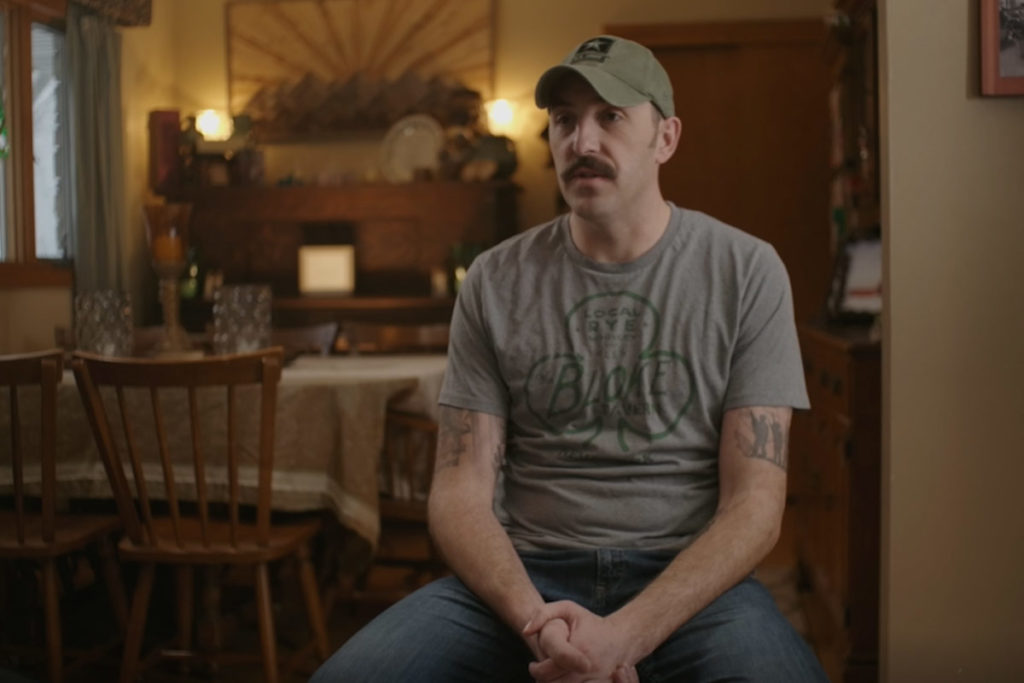"I don't naturally breathe through my nose, so when I force myself to, I feel like I'm suffocating."
During Andy's second visit, he underwent a CT scan followed by an in-depth assessment of his results with Dr. Handler.
He explained to the doctor his inability to breathe normally since he was very young. "I was an unhealthy kid. By the time I was 4 and 5, I couldn't breathe; I couldn't hear."
"When I was in first grade, I got tubes put in my ears and tonsillitis. Even then, I couldn't breathe, and it was just accepted that I'm always going to breathe through my mouth."
As Dr. Handler reviewed the imaging from the scan, he made it clear to Andy that his lifelong inability to breathe through his nose is, in fact, not normal. No matter how many previous physicians made him believe that it was just something he had to deal with.
What's Really Causing Andy's Mouth Breathing?
While examining his anatomy, Dr. Handler explained his primary issues reside within the areas along the sidewalls of the airways. These are called inferior turbinates and they are thin bones covered in soft, spongy tissue. Naturally, these get bigger and smaller throughout the day, responding to allergens, dust, and other debris.
Even when you have a perfectly healthy, properly working nose, they will become engorged when you lay down at night, really pinching off the airway. Anybody's nose will not work as well when they're laying on their back, compared to when they're upright.
Dr. Handler discovered that Andy has a deviated septum. Together, they agreed that even though he also has a deviated septum, surgery wouldn't be necessary, and an in-office procedure would help resolve his issues. Andy was relieved he could avoid going under the knife and missing work.
Moreso, he felt relieved to be treated by a doctor who was speaking from experience.
"I had issues with snoring and mouth breathing and a deviated septum." Dr. Handler shared. "And I resolved them with the in-office procedure because I didn't want to have the surgery."
Following his thorough and detailed conversation plan with Dr. Handler, who finally gave Andy some answers, he immediately met with a treatment coordinator to get his next steps scheduled.
"This has been very reassuring, I feel confident I was just born this way...but there is something we can do about it."
Next Steps: Will Andy Finally Find Relief?
In the next chapter of Andy's journey, he returns to ADVENT to receive a balloon sinuplasty and turbinate reduction. Will it be the answer he's hoping for?
Watch More Of Andy's Story:
Andy’s Journey To Breathing Better: 12 Week Follow Up
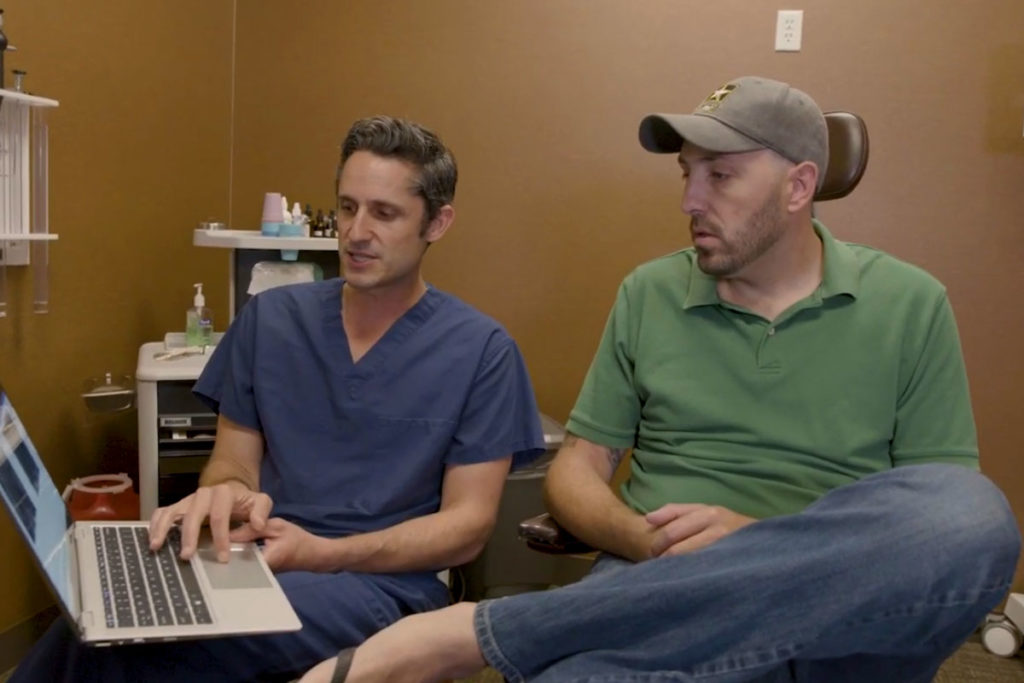
Andy’s Journey To Breathing Better: 6 Week Follow Up
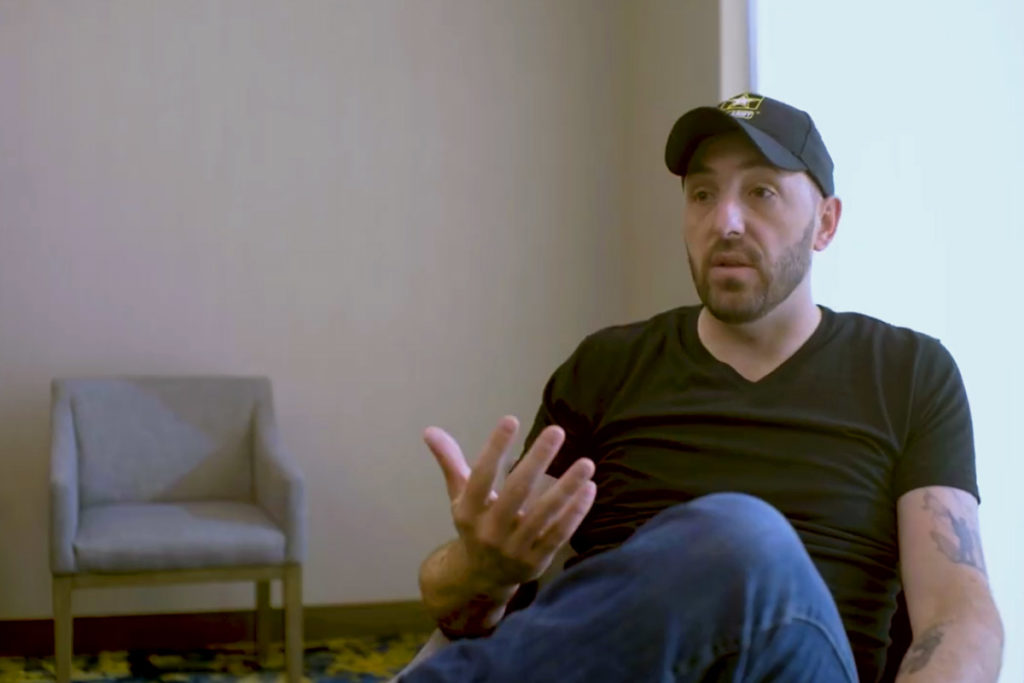
Andy’s Journey To Breathing Better: A “Broken” Nose Mended
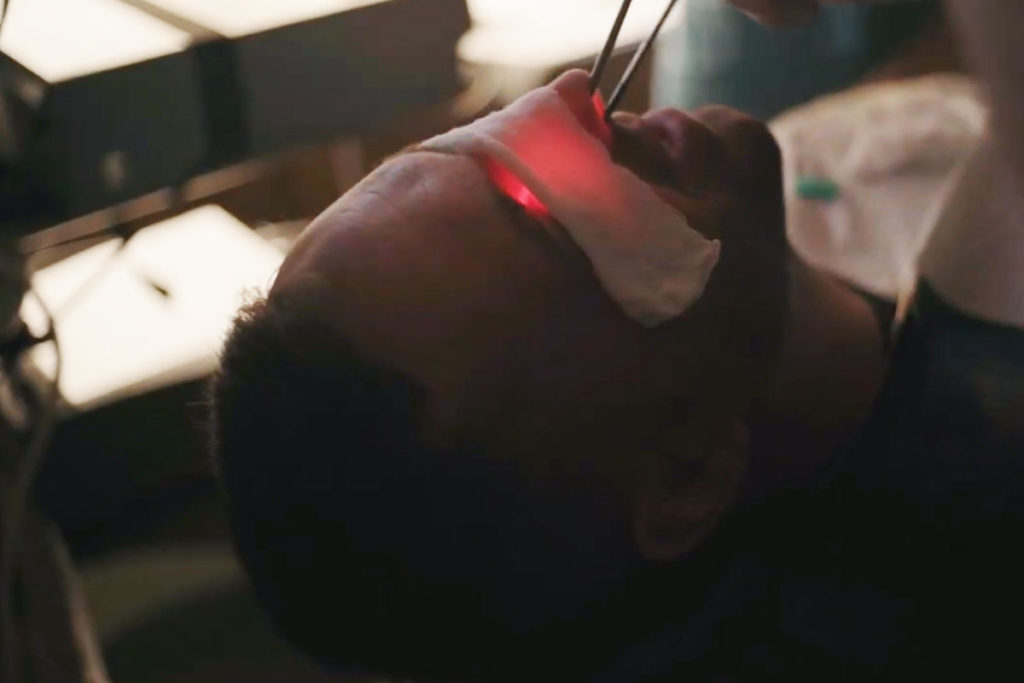
Andy’s Journey To Breathing Better: CT Scan & Treatment Plan
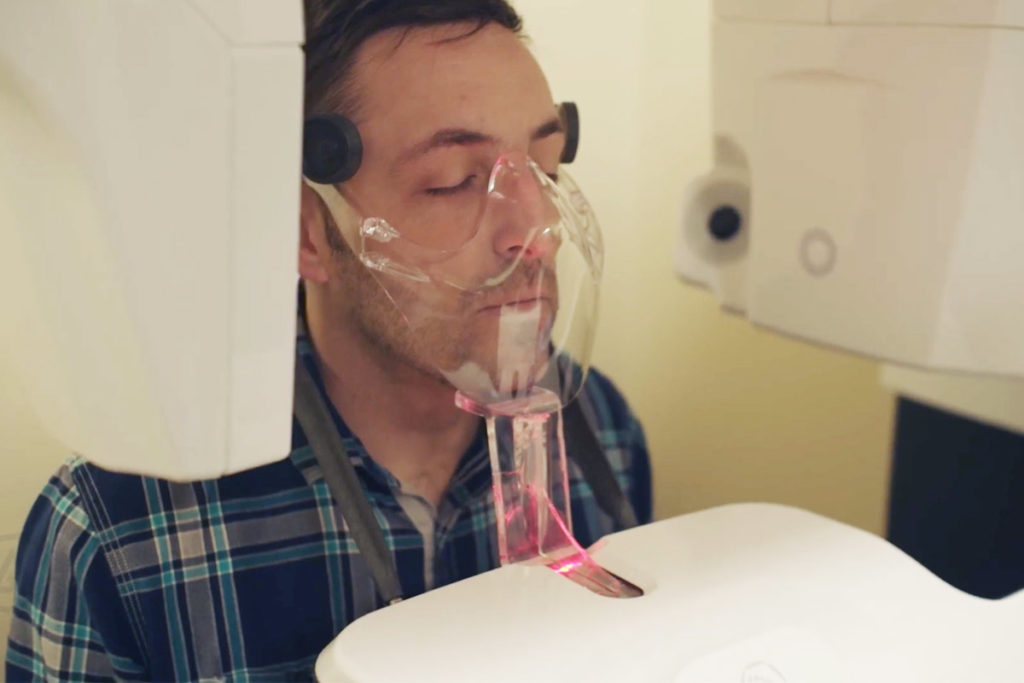
Andy’s Journey To Breathing Better: First Visit
